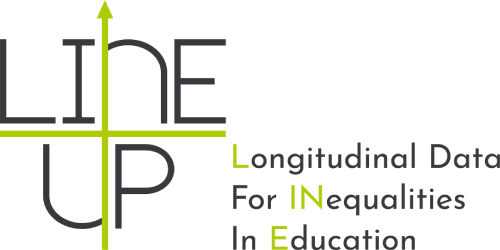The LINEup Advisory Board is a strategic body supporting the decision-making process within the project and disseminating its outcomes at all levels (research, policy and pratice).
The Advisory Boad includes a national authority from all participating countries and few external stakeholders coming from umbrella organisations and bringing additional expertise in the field of inequalities in education. Its members will facilite access to longitudinal data, supervise the mapping and qualitative research, provide input and guidance for project recommendations – while ensuring the project stays visible within their own institutions and facilitating community outreach at national and international level.
Advisory Board Members

Abigail Huston
Head of Region Europe of Teach For All
Abby is Head of Region for the Europe Regional Team leading on the programmatic and external strategy, driving towards impact and awareness of the work of Teach For All across Europe. She is in her 13th year at Teach For All, having started in 2012 as the Partner Engagement Director for the Baltics and supporting the programs in Lithuania, Latvia and Estonia. Previously, she was the Director of Arizona Teaching Fellows through The New Teacher Project in the US where she managed the recruitment, selection, training, and certification of 100s new teachers in more than 12 of the highest need districts throughout Arizona, including rural locations and Indian Reservations. She also has experience working with similar programs in Oakland, CA where she helped bring in over 500 new and certified teachers to teach in the highest need communities in Oakland. Before working for The New Teacher Project for 6 years, Abby was a Peace Corps volunteer in Moldova for two years where she taught Health and Life Skills in a village school to students in grades 6-12. She graduated from Purdue University with a degree in Political Science and Philosophy. Abby currently lives in London with her family.
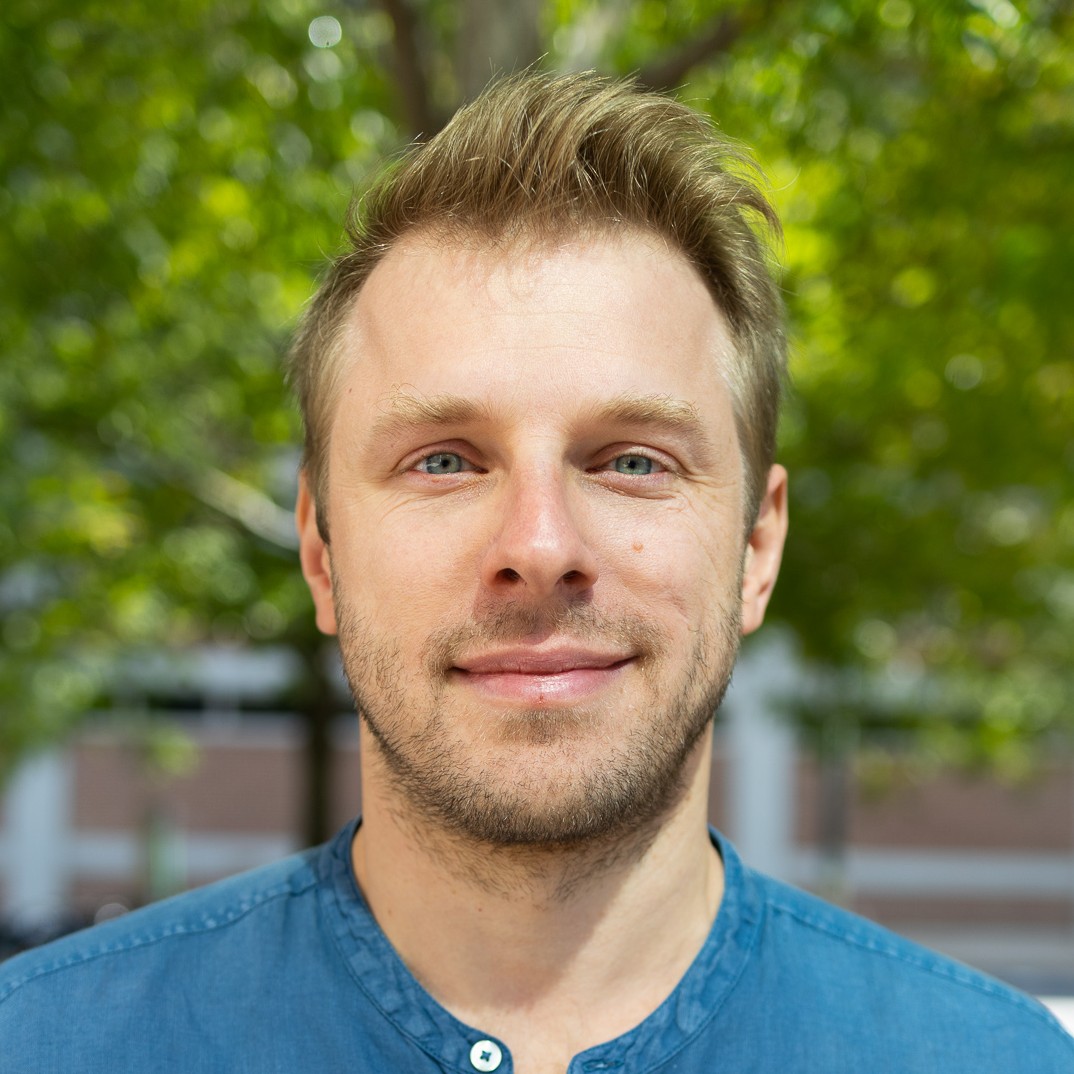
Adrien Pawlik
Director, Innovations, Données et Expérimentations en Education (IDEE)
He has been working as Project Director of the Innovation, Data and Experiments in Education (IDEE) programme since September 2022. IDEE is a 8-year government-funded initiative aimed at supporting the development of experimental research in education in France. Adrien also acts as J-PAL Europe’s Research vertical lead. He is an economist and has been working for a decade on impact evaluation of development projects and public policies, as well as other fields. Prior to joining J-PAL Europe, he was the Research Manager (J-PAL SA/LEAD) of the Behavioral Development Lab based out of Chennai, India, and worked as a Research Coordinator for IPA FWA. Adrien holds an MA in Development Economics from the University of Paris 1 Panthéon-Sorbonne.

Angelo Paletta
Professor, University of Bologna
He is Full Professor of Business Administration and Accounting, Director of the Department of Management, Member of the Academic Senate of the University of Bologna. At the same University, he teaches Management Control Systems and Performance Evaluation, Management Control, and Business Distress and Turnaround. As a researcher, he has studied management in education, corporate governance and internal controls, governance and accountability in universities, and the managerial challenges brought about by the circular economy and sustainable development. He is Co-Director of the Master in “Public Management and Innovation” at Bologna Business School. He was recently appointed President of the Technical Scientific Committee of the Provincial Institute for Educational Research and Innovation of the autonomous Province of Trento (Italy).
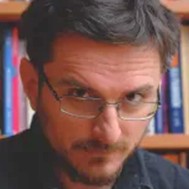
Artur Pokropek
Head of Computational Social Science Department, Polish Academy of Science
Artur is the Head of the Computational Social Science Division at the Polish Academy of Sciences and a member of the International Studies Group at the Institute of Educational Research in Warsaw. His profile uniquely combines experience in social sciences and quantitative methods. His main areas of research are statistics, psychometry, and machine learning. He planned, designed, and conducted many research projects. He published more than 100 scientific papers and conducted dozens of research projects. He gained knowledge as a visiting scholar at the ETS (Princeton, USA) from 2013 to 2014 and as an associate researcher at the JRC (Ispra, Italy) from 2016 to 2018. In 2020, he was a visiting scholar at the NBME (Philadelphia, USA). He holds a habilitation degree in social sciences, a PhD in educational sciences, and two MA degrees in educational sciences and sociology.
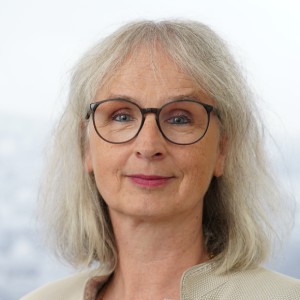
Cordula Artelt
Director, Leibniz Institute for Educational Trajectories (LIfBi)
She is director of the Leibniz Institute for Educational Trajectories as well as chair of the Department of Longitudinal Educational Research at the University of Bamberg. She is director of the National Educational Panel Study (NEPS), which is the largest long-term educational study in Germany and collects longitudinal data on educational processes. In addition, Cordula Artelt has been a Principal Investigator, speaker, or member of various research groups, committees, and scientific advisory boards. Her research interests include scientific and application-oriented questions in the areas of competence development, in particular text comprehension, digital and data literacy, metacognition as well as assessment.
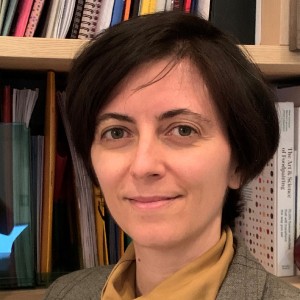
Francesca Borgonovi
Honorary Professor, University College London
Head of Skills Analysis,
OECD Centre for Skills
She is an Honorary Professor at University College London and is the Head of the Skills Analysis team in the OECD Centre for Skills at the Organisation for Economic Cooperation and Development (OECD) where she is responsible for the biennial flagship publication “The Skills Outlook”. In the past, she was responsible for analytical and development work in the OECD-led international assessments (PISA and PIAAC) and the Education for Inclusive Societies project. She has a wide academic and policy-oriented publication portfolio. Her research interests include: cross-country differences in skills, engagement, and motivation; gender and socio-economic disparities in academic outcomes; and the economic and social returns of skills.

Luís Pereira dos Santos
President, Instituto de Avaliação Educativa (IAVE)
He was a Physics and Chemistry teacher in secondary education for nine years and a member of the governing board at Cidade Universitária Secondary School of Lisbon until 2001. Between 2005 and 2011 he was the head of division for teacher training and the director for multimedia educational resources at the Portuguese Ministry of Education. From 2011 to 2019 he was the president of the national examinations committee and currently he leads the Governing Board of the Institute for Educational Assessment, IAVE, responsible for national exams, standardized assessment, and international studies in Portugal. He is a member of the Governing Board of PISA (Programme for International Student Assessment) and of the General Assembly of the IEA (International Association for the Evaluation of Educational Achievement).
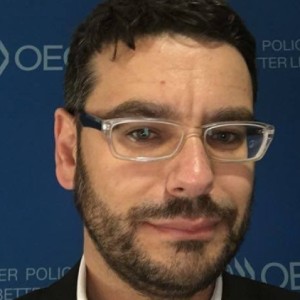
Massimo Loi
Analyst, Directorate of Evaluation, Forecasting, and Performance Monitoring (DEEP), French Ministry of Education and Youth
Massimo holds a PhD in Economics and Management from the University of Padua (Italy). He has worked for several international and national organizations, including the European Commission, the OECD, UNESCO (as a consultant), the Norwegian Center for ICT in Education, and the University of Oslo. In September 2023, Massimo Loi joined the Directorate of Evaluation, Forecasting, and Performance Monitoring at the French Ministry of Education and Youth, where he leads two different groups of statisticians. The first group deals with the implementation and analysis of the results of exhaustive evaluations conducted at the beginning of each school year in elementary schools. The second group focuses on the implementation and analysis of the results of international comparative studies such as PISA, TIMSS, PIRLS, ICCS, and ICILS. Massimo Loi is the author of several articles on the use of new technologies for educational purposes.
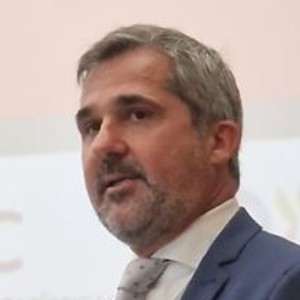
Nuno Neto Rodrigues
General Director, Direção-Geral de Estatísticas da Educação e Ciência (DGEEC)
Postgraduate in Sociology of Employment, he is General-Director of the Directorate-General for Education and Science Statistics since August 2020. Between 2020 and 2013, he was Director of Education Statistics, between 2012 and 2010 Deputy-Director, and between 2010 and 2007 Director of Statistics at the Statistics and Education Planning Office. Before that, he was Executive-Director of the Information Society Observatory (2004-2007). During his career, he has been Member of National and International Organizations and Working Groups (such as National Statistics Council, European Commission, OECD, OEI, etc.), National Project Manager in TALIS 2018, TALIS 2013 and Learning to Learn, and National Data Manager in TALIS 2008. He is author of several publications and presentations in the area of education and information society.
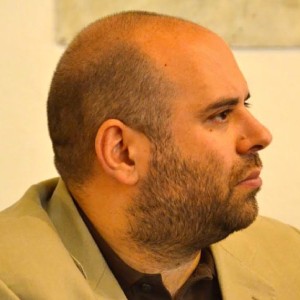
Orazio Giancola
Professor, Sapienza University of Rome
Orazio is Associate Professor of Sociology in the Department of Social and Economic Sciences at the Sapienza University of Rome. His research fields include equity in education; comparative analysis of performance and inequalities through international large-scale assessment; analysis of educational governance processes at the local, national and transnational levels; methods and techniques of social and evaluative research.
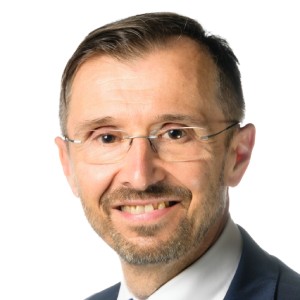
Roberto Ricci
President, Italian Institute for the Evaluation of the Education and Training System (INVALSI)
PhD in Statistical Methodology for Scientific Research at the University of Bologna, he has been working on educational achievement measurement through standardized tests for over twenty years. He is president of INVALSI since 2021. He is a member of the Governing Board of PISA (Programme for International Student Assessment) and of the General Assembly of the IEA (International Association for the Evaluation of Educational Achievement). Recently he has been working on the transition to computerized administration of the INVALSI tests, also from an adaptive perspective at the individual level. He is author of several articles on aspects related to large-scale assessment.
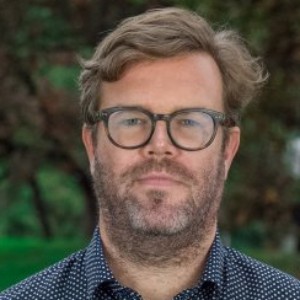
Tom Wambeke
Chief Learning Innovation,
International Training Centre of the ILO
Tom is graduated in Educational Sciences, holds a Master in Cultural Management and an Executive Business LEAD degree in Innovation at Stanford University. Before joining the International Training Centre of the ILO he was Assistant Professor at the University of Leuven and innovation coach at Open Higher Education in Belgium. He is currently Chief of Learning Innovation which specializes in providing sustainable learning solutions with the objective to generate impact and organizational change. In this context he works closely together with UN agencies, development banks, international organisations, governments and NGO’s.
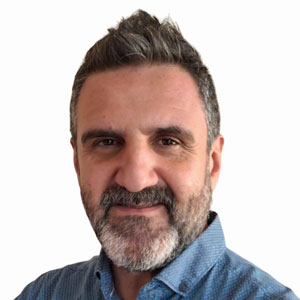
Vasileios Gkamas
Senior Researcher, Computer Technology Institute and Press “Diophantus” (CTI)
He holds a BSc on Information and Communication Systems Engineering (University of Aegean) and a MSc and PhD on Computer Science (University of Patras). Since 2006, he works at the Computer Technology Institute and Press “Diophantus” contributing to numerous national and European projects in the area of school education. Since 2017, he has been working with the University of Patras participating as a researcher in numerous European projects in the domain of digital skills development. During the last 7 years, he has been an adjunct lecturer at Athens University of Economics and Business, and at University of West Attica teaching diverse ICT subjects. He has extensive experience with digital and deep tech skills development, curriculum and learning resources development, educational technologies.
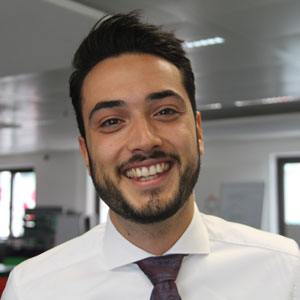
Konstantinos Andronikidis
Education Policy Manager,
European Schoolnet
Konstantinos joined European Schoolnet in 2018 and is currently working as Education Policy Manager. He coordinates the activities of the Policy Learning Lab which aim to support and enhance the exchange and collaboration among member public education authorities of the organisation. He coordinates the work of the Interactive Classroom Working Group which allows education authorities to explore common areas of concern, share experience, and address policy challenges related to the integration of a wide range of technologies in classroom and their impact on teaching and learning. He also supports the overall activities of the Future Classroom Lab’s (FCL) umbrella, an inspirational environment to challenge visitors to rethink the role of pedagogy, technology, and design in their classrooms. He contributes to the overall outreach and advocacy activities of the organisation and manages the organisation of the School Innovation Forum, an annual exchange and networking event, gathering representatives from public education authorities, the EdTech sector, research institutions, and other experts in the field of digital education. He holds a bachelor’s degree in International and European Studies from the university of Macedonia (Thessaloniki) and a master of science in Educational Studies from KU Leuven.

